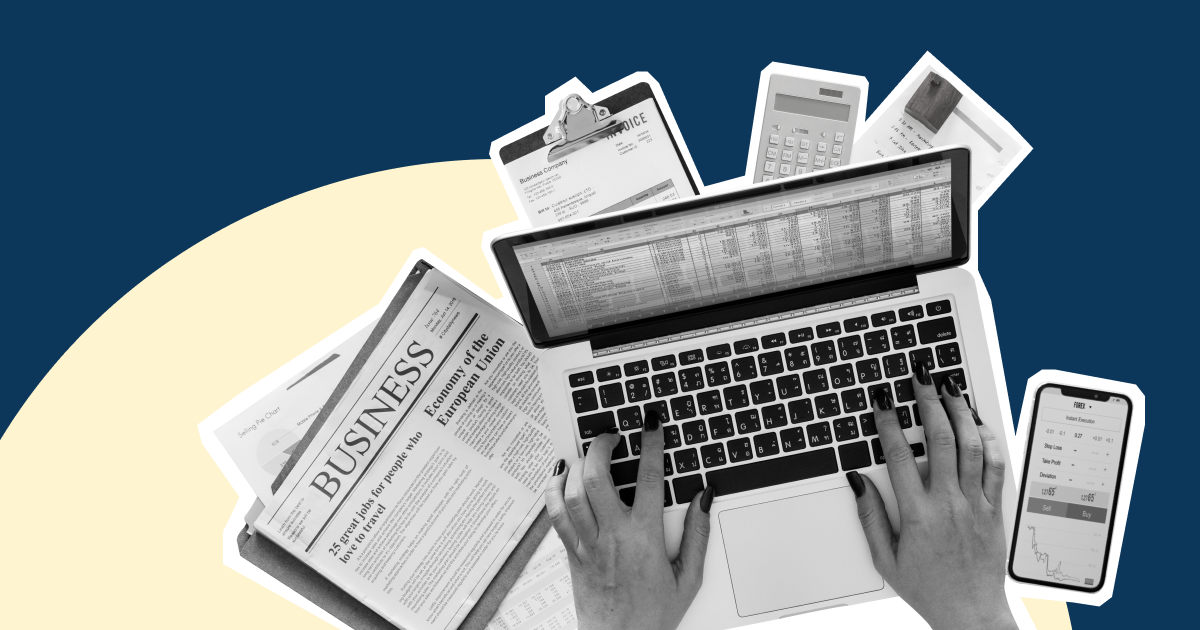Summary
- Business checking accounts separate personal and business finances, simplify tracking income/expenses, and make budgeting more accurate and organised
- There are 3 main types of business checking accounts: Basic accounts for everyday transactions, Premium accounts for high-volume usage with added perks and lower fees, and Joint accounts for shared access among business partners
- Having multiple checking accounts can help you streamline budgeting and accounting, simplify taxes, protect personal assets, build credibility, and provide emergency fund readiness
- When managing multiple checking accounts for business, you need to assign clear purposes to each account, maintain required balances to avoid penalties, keep finances organised, and consolidate accounts if they overlap or become costly
Running a business in Singapore means juggling many responsibilities, but keeping your finances organised should always be at the top of the list. One of the smartest ways to do this is by using dedicated business accounts instead of mixing them with personal savings or current accounts. Not only does this help with compliance, it also makes day-to-day money management far easier.
Business checking accounts, in particular, play a central role. They are essential for handling payroll, covering operating expenses and tracking financial goals. And when you use more than one, you can separate different aspects of your budget, which may give you greater control, clarity and confidence in your financial decisions.
So, let’s find out how a business checking account can simplify and strengthen your financial management.

What is a business checking account
A business checking account is essentially a bank account created solely for managing your business’s finances and is separate from your personal checking and savings accounts. Such accounts are used to handle business expenses, including deposits and withdrawals to pay suppliers and employees, and are featured in all business-related financial transactions.
Since these bank accounts are intended for businesses, they come with additional benefits, such as mobile banking, overdraft protection, online banking services, and so on. They guarantee that your company will have a financial management system that is streamlined, convenient, and uncomplicated.
What’s a business checking account's role in budgeting
One of the most essential aspects of financial planning is budgeting. It helps create a detailed list of revenues and expenditures of your business for a given timeframe. You can create budgets monthly, quarterly, half-yearly, or yearly. Budgeting essentially acts as a financial roadmap to outlining your business’s goals by forecasting income and expenses to monitor performance against the plan.
Two important aspects of budgeting include forecasting the expected income and expenses. A business checking account helps achieve this goal by separating your personal finance expenses from business-related ones to avoid confusion and complications. It simplifies your expense categorisation process and promotes clear cash flow tracking.
As an entrepreneur, you become more mindful of spending by using these accounts because every day transaction will run through this account. Apart from this, monitoring the balances and transactions in real time becomes easier. A combination of all these aspects makes your budgeting easier.
What are the types of business checking accounts
There are three categories of business budget checking accounts. Each of these accounts has different features, benefits, and requirements. They are:
Basic checking account
A basic business checking account is ideal for daily transactions. This helps keep track of spending habits and everyday expenses, along with your daily inflows and outflows of funds for your business, making it easier to stick to a budget.
Premium checking account
This account comes with additional perks for a business, which can include a lower or no transaction fee for maintaining a higher minimum balance. If your business has a high transaction volume, this will be useful.
Joint checking account
This account works just like regular joint bank accounts that offer shared access to the accounts and funds. All account owners have full access to the funds held in it and can execute transactions just like in a regular account. It is ideal for sharing financial responsibilities in a professional setting.
How many business checking accounts should you have
The number of business checking accounts your business can have will vary depending on your business structure, expense segregation, financial management practices, and budgeting goals.
For instance, if your business has multiple verticals, having dedicated and separate accounts is helpful. These accounts help segregate expenses, making it easier to stay on top of accounting and taxation requirements. You can open multiple checking accounts for budgeting purposes.
What are the benefits of having multiple checking accounts
Streamlined budgeting and accounting
You can create and manage budgets more effectively when your business has multiple accounts, as each account serves a distinct purpose and tracks specific inflows and outflows of funds.
Simplify taxes
Dealing with taxes is not the most exciting aspect of conducting business, but it is necessary. By segregating business expenses into different categories and maintaining different accounts, it becomes easier to stay on top of your business’s tax obligations.
Asset protection and professionalism
Keeping multiple budget checking accounts for your business is a simple means to segregate personal expenses from business ones. This is needed to protect your personal assets from the business in case of any legal issues or debt. Also, having multiple business checking accounts is a sign of professionalism that helps build customer and client trust.
Emergency fund readiness
Setting aside money in a separate account for emergencies ensures your business has a financial cushion to fall back on. Whether it’s an unexpected expense, a dip in cash flow, or an urgent supplier payment, having a dedicated emergency fund helps you stay resilient without disrupting your regular operations.
Credibility
Having dedicated checking accounts for business transactions helps build your business’s credibility and makes it easier to obtain credit or business credit cards when needed.
How having multiple business checking accounts can improve budgeting
Maintaining multiple business checking accounts makes budgeting easier. This is because a specific sum can be allocated across different categories of expenses, depending on the account to which they are attached. When the expenses are categorised automatically, your business can directly tap into the required account to cover the cost without additional accounting.
It’s important to understand the major categories of expenses your business incurs to make the most of this. Some common examples include operations, taxes, payroll expenses, receipts, and payments to contractors or vendors, et cetera.
Once you know these categories, a specific portion of income must be allocated to each account. So, as and when a specific expense arises, it can be met from the funds within the dedicated account.

How to use multiple business checking accounts for budgeting
Categorise your accounts
A smart first step in budgeting is to separate your business income and expenses into dedicated accounts. Instead of keeping all funds in one place, divide them by purpose.
For example, you could create:
- An operating expenses account for salaries, rent, utilities, and bills.
- An emergency or savings account to set aside money for unexpected costs.
The number of accounts depends on your business needs, but each account should have a clear purpose.
Allocate funds
Once you have set up the accounts, decide how much money to transfer into each. For instance, if operating expenses take up 50% of your monthly income, transfer that amount to your operating account. If you want to save 10%, set up an automatic transfer into your savings account.
Track this system for a month, then adjust your allocations if needed.
Best practices of managing multiple business checking accounts
For managing multiple accounts, you need to make a note of the following:
Understand the purpose
The first thing to do when dealing with multiple business checking accounts is to understand the purpose of each account. This is like using different ledgers for different business expenses. Ensure your business checking account doesn’t include any personal expenses for better bookkeeping and tax purposes.
Knowing exactly what each account is for makes it easier to monitor the expenses, track deposits, and avoid unnecessary confusion.
Keep things organised
Keeping things organised is a great financial habit for monthly maintenance. Chaos spells trouble, especially in money matters. In the previous section, you were introduced to how many checking accounts can be used for budgeting. By implementing these suggestions, you can keep your business’s finances organised.
Maintain the required balance
Most checking accounts have a minimum balance requirement. While handling multiple business checking accounts, it’s easy to lose track of this and dip too low. Not maintaining the required balance usually attracts penalties. The simplest way to avoid this is to check the accounts regularly and choose an account that doesn’t require a higher minimum balance.
Consolidate when needed
Wondering how many bank accounts are too many? Well, having multiple business checking accounts is beneficial for budgeting, but it's better to consolidate when there’s overlapping of features or any redundancies. Take the time needed to review the list of accounts and compare their features and benefits to determine whether they serve a purpose.
For instance, if you notice the fees charged and minimum balance to be maintained are quite high and not doing so is attracting penalties, it’s better to consolidate to avoid fees.

Aspire: The smarter alternative to a traditional business checking account
While multiple business checking accounts can help you manage your budget more effectively, handling inflows and outflows across several accounts at once can be overwhelming. From our experience, we often see entrepreneurs struggle with recording transactions and tracking expenses, which in turn leads to cash flow challenges. More often than not, the root cause is reliance on manual processes that are prone to human error and inaccuracies.
That’s why, if you choose to use multiple business checking accounts, it’s important to ensure your accounts can simplify financial management. Look for features such as budget setting, real-time expense monitoring, automated recurring payments, and tracking of receivables and payables — all of which give you a clearer view of your cash flow.
This is where the Aspire Business Account comes in. We’ve taken the familiar concept of a checking account and enhanced it with modern tools designed for growing businesses:
- Speed & convenience: You can open an account with us in just a couple of minutes and manage everything online. This means, no endless paperwork, no branch visits.
- Multi-currency advantage: While standard accounts often lock you into one currency and extra conversion fees, we support SGD, USD, and IDR transfers for free, plus conversions into 30+ currencies at mid-market rates. Perfect if you work with overseas suppliers, freelancers, or global clients.
- Global payments made simple: Expanding beyond borders? We offer competitive FX rates and transparent pricing, so every transaction stays cost-effective.
- Low fees, transparent pricing: With no hidden charges and SGD $0/month for our Business Account Lite, we give you the flexibility to scale without worrying about mounting banking fees.
- Cashback on spend: Unlike traditional checking accounts, we reward you with 1% cashback on digital marketing and subscription expenses. This is a direct benefit for modern, digital-first businesses.
- Built-in integrations: We sync seamlessly with your accounting software so you can spend less time reconciling and more time growing.
Why settle for less? Open your Aspire Business Account today and start scaling smarter.
Frequently asked questions
What is the meaning of a checking account?
A checking account is a special bank account that allows account holders to make deposits or withdrawals for daily expenses such as utilities, bill payments, etc. It is designed for everyday spending and everyday banking.
Can I open multiple checking accounts for budgeting?
Multiple checking accounts can be opened for budgeting and financial planning purposes. The idea is to categorise the checking accounts according to the type of expenses you normally incur and then allocate the required funds to the corresponding accounts. This is a simple yet effective means of sticking to a budget you have created without going overboard.
How to budget with two bank accounts?
If you have two or more bank accounts, it becomes easier to categorise your expenses. That said, the first step is to create a monthly, quarterly, and annual budget. The next step is categorising the common and recurring expenses depending on the budget. Once the list of expenses is in place, create a budget and allocate funds for each of these expenses. Allocate sufficient funds to the multiple bank accounts to cover the said expenses. When an expense arises, funds from the corresponding account can be used for payments.










%201.webp)


.webp)